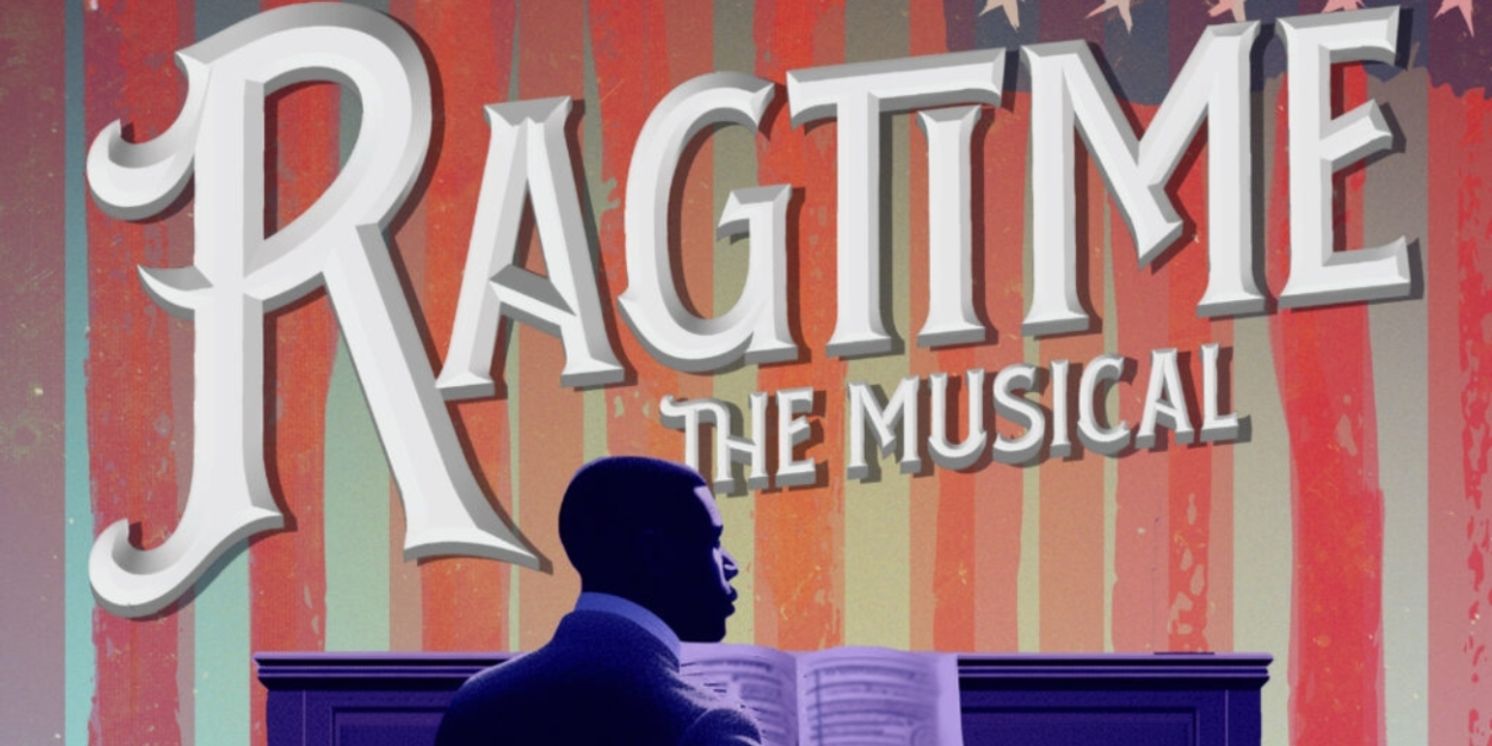Review: RAGTIME THE MUSICAL at Lincoln Theatre
‘Well’ done production presents a timeless message.

In a tender moment in Columbus Children Theatre;s production of RAGTIME, Mother (played by Ronnie Stiffler) looks deep into the eyes of Tateh the filmmaker (Eric Sand) and, after an awkward moment of silence, she says, “Well.”
Taheh looks at her and mentions, “You say that often, ‘well.’”
Mother embarrassingly looks back at him and says, “It is because I don’t know what else to say.”
Critics use the word “well” often when describing the arts. Something is “well-written,” “well performed,” “well-acted,” “well thought-out.” RAGTIME, which runs Sept. 22-Oct. 1 at the Lincoln Theatre (769 E. Long Street in downtown Columbus), is all of those things, and more.
After the show’s curtain call, audience members looked at each other with that same awkwardness as if to say, “well…”
The normal superlatives fail to surface.
Directed by David Bahgat, RAGTIME starts with a well-manicured script that weaves together the stories of three marginalized social groups (African Americans, immigrants, and women) in the turn of the century America and then delivers a punch to the solar plexus at the end of the two-act show. It mixes mesmerizing performances, tight harmonization, and orchestration. It then tops the musical off with a message that needs to be heard, now more than ever.
The main thread in the story is that of Coalhouse Walker Jr. (David J. Glover), a ragtime piano player in turn-of-the-century New York City. After finding success and sowing his wild oats, Walker wants to settle down. He buys a Model T and pursues his long, lost love Sarah (Laura Overby) who, unbeknownst to Walker, has given birth to his son. After months of pursuing Sarah, one romantic gesture at a time, Walker is set to marry Sarah and takes her and his infant son out for a ride in the country.
Then things unravel like a poorly made yoyo. Walker is attacked by racists who beat him and destroy his car. He vows not to marry until he achieves justice. Sarah tries to intervene, attempting to grab the attention of a vice presidential candidate to her husband’s plight only to be beaten to death when she is mistaken for being an assassin.
During this same time frame, Tetah and his daughter (Nora West) try to snag a meager portion of the American Dream and Mother, who isn’t given a name (much like Curly’s wife in John Steinbeck’s OF MICE AND MEN), squirms under the thumb of her oppressive, controlling husband (Ross Shirley).
McNally’s script is rich, polished, and accessible with a few great one liners like when Owen Suarez informs his mother, “Father says a woman’s place is in the home,” Mother responds tartly, “then your father should have stayed at home.” Musical director Matthew Downing and choreographer Gabrielle Stefura take advantage of a Tony-winning score poignantly written by Lynn Ahrens (lyrics) and Stephen Flaherty (music), the same duo who also penned the scores for ANASTASIA and SEUSSICAL.
Bahgat, Downing and Stefura have a wide range of talent on the show palette to paint an extraordinary portrait. Glover and Overby transform from a reluctant pairing at first to an inseparable couple making the end of the first act so devastating. Their voices mesh flawlessly for the show stopping “The Wheels of a Dream” and the hauntingly beautiful “Sarah Brown Eyes.” Glover transitions perfectly from the hopeless romantic to the hellbent crusader in the course of the show.
On the opposite end of the spectrum, Stiffler and Shirley are convincing as a couple whose love has been cooled by distance and silence. The pair only have one song together “Journey On” and in a bit of foreshadowing the two are joined by Tateh (Sand).
As Tateh and his daughter, Sand and Nora West capture the tension of immigrants trying to survive in a new world without their recently deceased mother. In the first act, West, in particular, has this sharp suspiciousness and pain in her longing glances at the world surrounding her.
While the show centers on these three groups, Bahgat lets the spotlight spread to the other players on the periphery. Hunter Minor is dynamite as a son of privilege who is drawn to Walker’s plight. In his role as grandfather, William Hafner is perfectly cast as the crusty curmudgeon. Yet it is Ariyah Wallace’s stirring rendition of “Till We Reach That Day” that drew the audience to its feet at the end of the first act.
RAGTIME uses a lot of familiar name characters, like Henry Ford (Andrew LeVan), Emma Goldman (Amy Silver Judd), Harry Houdini (Jordan Young), JP Morgan (Michael Neary), Evelyn Nesbit, (Tatum Beck), and Booker T. Washington (Andrew Horton), to flesh out this period piece. Horton’s delivery of “Look What You’ve Done” and Judd’s presentation of “The Night That Goldman Spoke at Union Square” add sparkle to the performance.
RAGTIME may have been written about events in 1906, but sadly, a quick rewrite here and there and the show could be set in the 1960s, 2010s, or even in yesterday’s headlines. It is fitting the show returns to the song “The Wheels of a Dream” for its finale: “With the promise of happiness/ And the freedom he'll live to know. /He'll travel with head held high,
Just as far as his heart can go./And he will ride/Our son will ride/On the wheels of a dream.”
Until this country learns to celebrate its people’s differences and give each other the respect and dignity each person deserves, there will always be a need for shows like RAGTIME.
Well done, CCT. Well done indeed.
Reader Reviews
Videos

